-
 Study abroad with CAS this summerStudying abroad broadens students’ horizons, reshapes global perspectives, boosts confidence, builds lasting friendships, and strengthens language skills and adaptability. Studying abroad broadens students’ horizons, reshapes global perspectives, boosts confidence, builds lasting friendships, and strengthens language skills and adaptability.
Study abroad with CAS this summerStudying abroad broadens students’ horizons, reshapes global perspectives, boosts confidence, builds lasting friendships, and strengthens language skills and adaptability. Studying abroad broadens students’ horizons, reshapes global perspectives, boosts confidence, builds lasting friendships, and strengthens language skills and adaptability. -
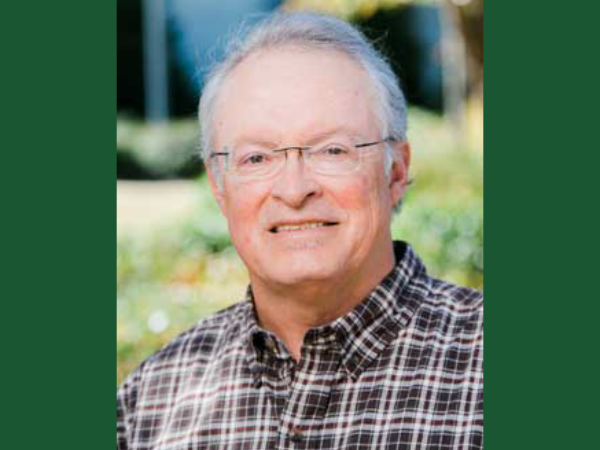 Stephen A. Watts, Ph.D., wins 2026 Richard B. Marchase, Ph.D. AwardStephen A. Watts, Ph.D., is the winner of the 2026 Richard B.
Stephen A. Watts, Ph.D., wins 2026 Richard B. Marchase, Ph.D. AwardStephen A. Watts, Ph.D., is the winner of the 2026 Richard B. -
 Bacteria-derived protein source shows positive results for health benefits, potentially reducing cholesterolUAB researchers have begun testing on a bacteria-derived protein, and early studies show it could lower cholesterol and improve metabolism.
Bacteria-derived protein source shows positive results for health benefits, potentially reducing cholesterolUAB researchers have begun testing on a bacteria-derived protein, and early studies show it could lower cholesterol and improve metabolism. -
 College of Arts and Sciences announces upcoming interdisciplinary forums for the 2025 – 2026 academic yearThe following is the schedule of forums for the 2025 – 2026 academic year. The forums will take place on Fridays between 1:25 p.m.
College of Arts and Sciences announces upcoming interdisciplinary forums for the 2025 – 2026 academic yearThe following is the schedule of forums for the 2025 – 2026 academic year. The forums will take place on Fridays between 1:25 p.m. -
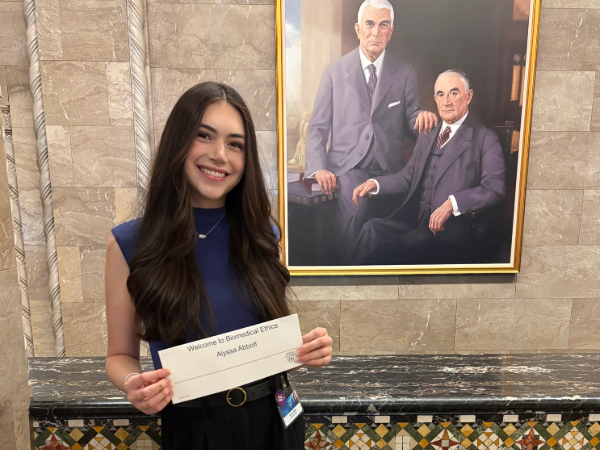 Abbott shares her SUPER experience at the Mayo ClinicThis summer, Department of Philosophy student Alyssa Abbott had the opportunity to participate in the Mayo Clinic's ten-week Summer Undergraduate Program in Biomedical Ethics Research in Rochester, Minnesota. In her article for CAS News, Abbot shares her SUPER experience.
Abbott shares her SUPER experience at the Mayo ClinicThis summer, Department of Philosophy student Alyssa Abbott had the opportunity to participate in the Mayo Clinic's ten-week Summer Undergraduate Program in Biomedical Ethics Research in Rochester, Minnesota. In her article for CAS News, Abbot shares her SUPER experience. -
 The College of Arts and Sciences welcomes new department chairsWith larger incoming classes and the expansion of new, innovative certificate and degree programs, the College welcomes five new department chairs to support the CAS community. Viability and Organizational Health are two unique foundational values in the College of Arts and Sciences Strategic Plan.
The College of Arts and Sciences welcomes new department chairsWith larger incoming classes and the expansion of new, innovative certificate and degree programs, the College welcomes five new department chairs to support the CAS community. Viability and Organizational Health are two unique foundational values in the College of Arts and Sciences Strategic Plan. -
 NIH renews $5.75 million aging research funding for UABNathan Shock Centers across the nation are funded by the National Institute on Aging to provide leadership in the pursuit of basic research into the biology of aging.
NIH renews $5.75 million aging research funding for UABNathan Shock Centers across the nation are funded by the National Institute on Aging to provide leadership in the pursuit of basic research into the biology of aging. -
 Four honored with Provost’s Awards for Faculty ExcellenceStacy Moak, Mary Kathryn Sewell-Loftin, Sarah Culver and Samiksha Raut demonstrated extraordinary commitment to engaging undergraduate students in service learning, undergraduate research, education abroad and core teaching.
Four honored with Provost’s Awards for Faculty ExcellenceStacy Moak, Mary Kathryn Sewell-Loftin, Sarah Culver and Samiksha Raut demonstrated extraordinary commitment to engaging undergraduate students in service learning, undergraduate research, education abroad and core teaching. -
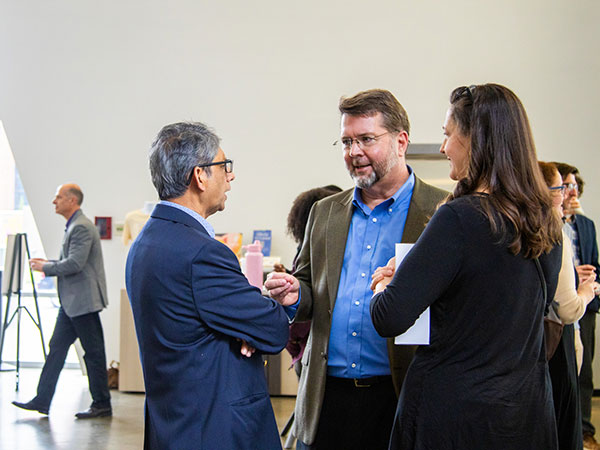 College of Arts and Sciences faculty members published 17 books in 2024College of Arts and Sciences faculty gathered at the Abroms-Engel Insitute for the Visual Arts on April 21 to celebrate 19 authors.
College of Arts and Sciences faculty members published 17 books in 2024College of Arts and Sciences faculty gathered at the Abroms-Engel Insitute for the Visual Arts on April 21 to celebrate 19 authors. -
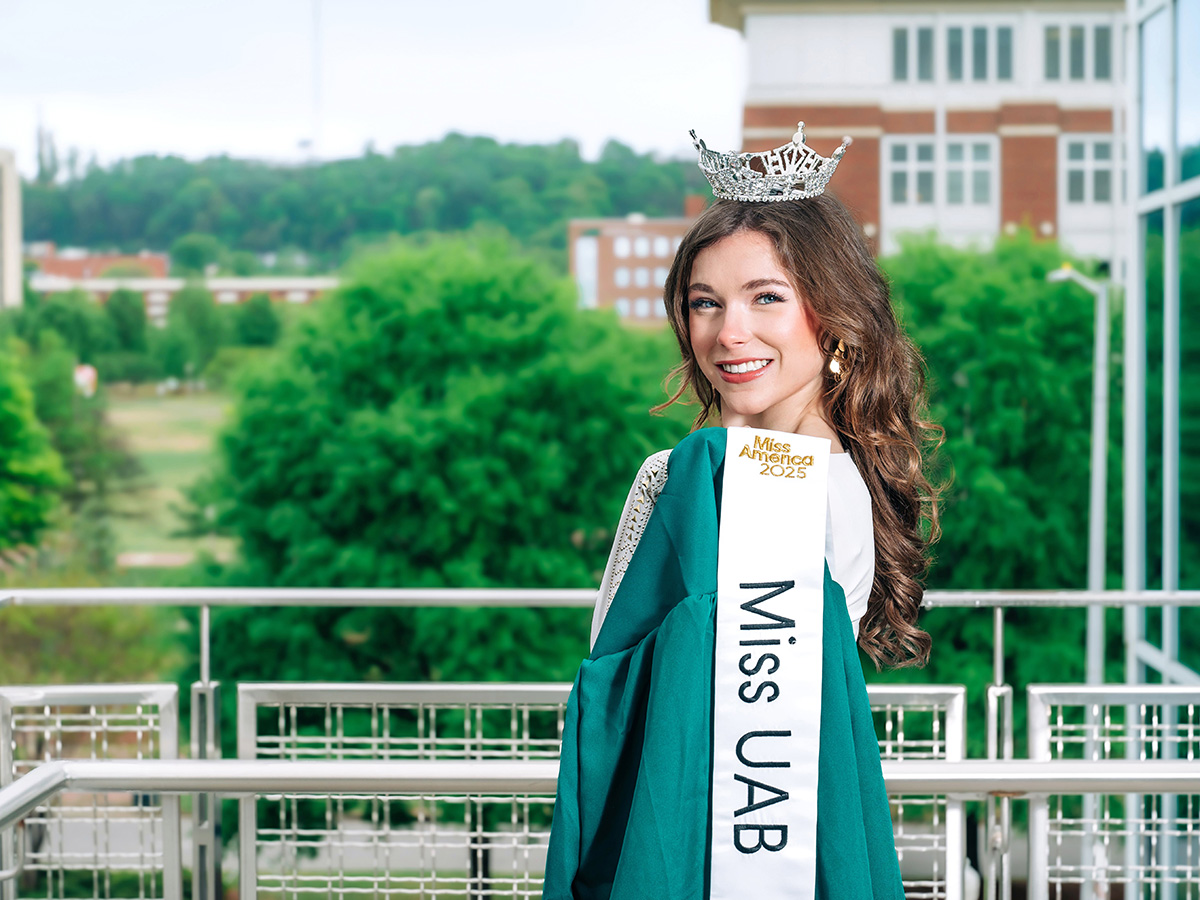 Graduation gown and the Miss UAB crownMelissa Mercer, Miss UAB 2025, is set to graduate Saturday, May 3 — just eight weeks before she takes the stage to compete for the prestigious title of Miss Alabama.
Graduation gown and the Miss UAB crownMelissa Mercer, Miss UAB 2025, is set to graduate Saturday, May 3 — just eight weeks before she takes the stage to compete for the prestigious title of Miss Alabama. -
 Students in Early Medical School Acceptance Program publish researchThe University of Alabama at Birmingham offers a unique academic experience for students who plan to pursue medical, dental, or optometry school. Kaitlin Ross The University of Alabama at Birmingham offers a unique academic experience for students who plan to pursue medical, dental, or optometry school.
Students in Early Medical School Acceptance Program publish researchThe University of Alabama at Birmingham offers a unique academic experience for students who plan to pursue medical, dental, or optometry school. Kaitlin Ross The University of Alabama at Birmingham offers a unique academic experience for students who plan to pursue medical, dental, or optometry school. -
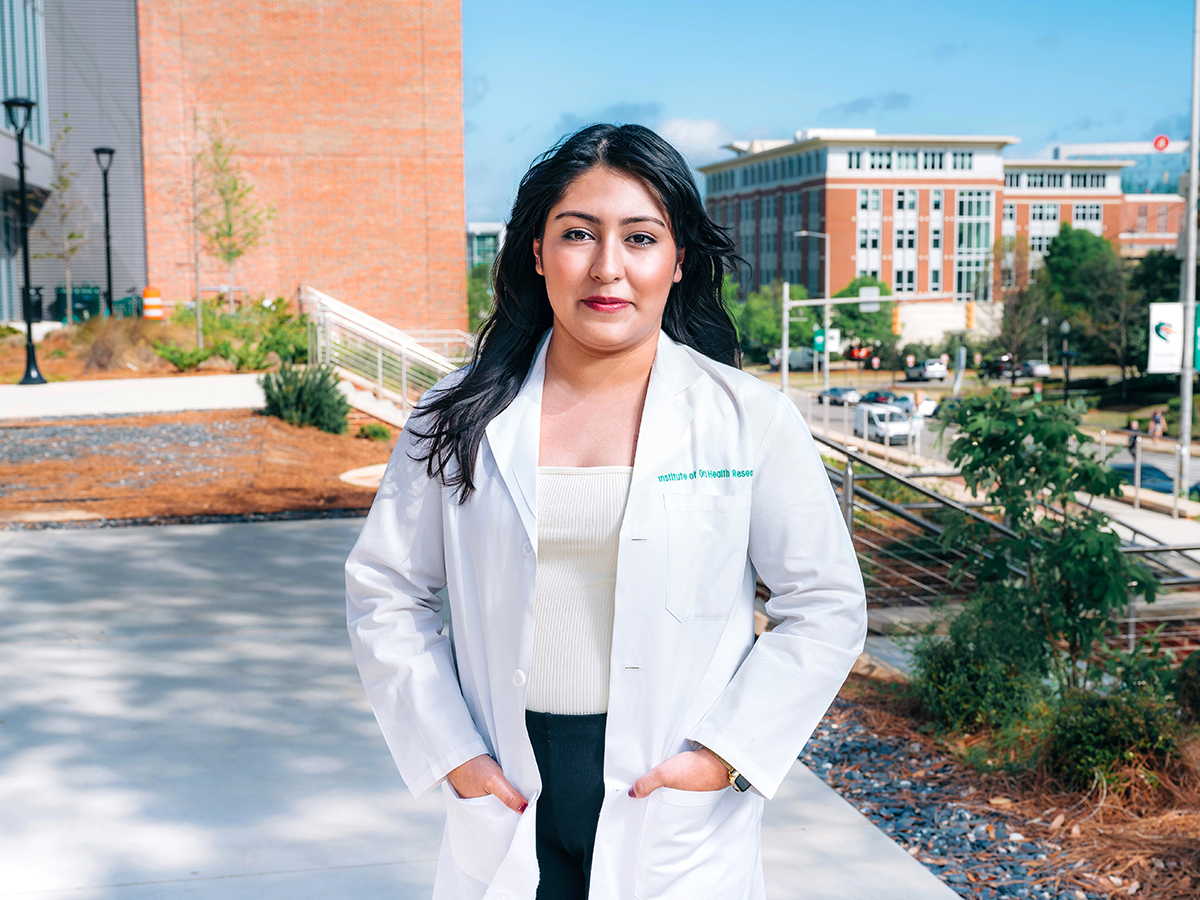 Support and determination propel transfer student to graduation successJacqueline Hernandez-Burgos would have never guessed that when she transferred to UAB she would also become familiar with UAB Medicine.
Support and determination propel transfer student to graduation successJacqueline Hernandez-Burgos would have never guessed that when she transferred to UAB she would also become familiar with UAB Medicine. -
 Huang combines arts with the sciencesHuang discovered a profession that incorporates both the arts and sciences when she became an illustrator for anatomy textbooks and scientific medical journals. “I couldn’t let go of either,” said Huang, who graduated in 2009.
Huang combines arts with the sciencesHuang discovered a profession that incorporates both the arts and sciences when she became an illustrator for anatomy textbooks and scientific medical journals. “I couldn’t let go of either,” said Huang, who graduated in 2009. -
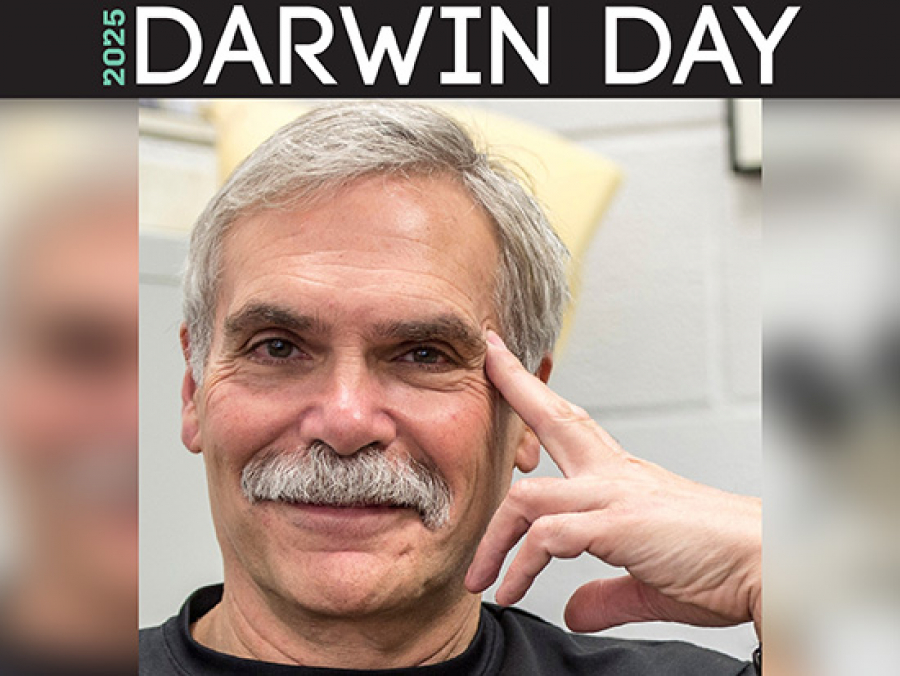 Join UAB Department of Biology for Darwin Day 2025 on Feb. 13Darwin Day is an annual celebration recognized internationally in honor of the birthday and legacy of the historically renowned biologist Charles Darwin.
Join UAB Department of Biology for Darwin Day 2025 on Feb. 13Darwin Day is an annual celebration recognized internationally in honor of the birthday and legacy of the historically renowned biologist Charles Darwin. -
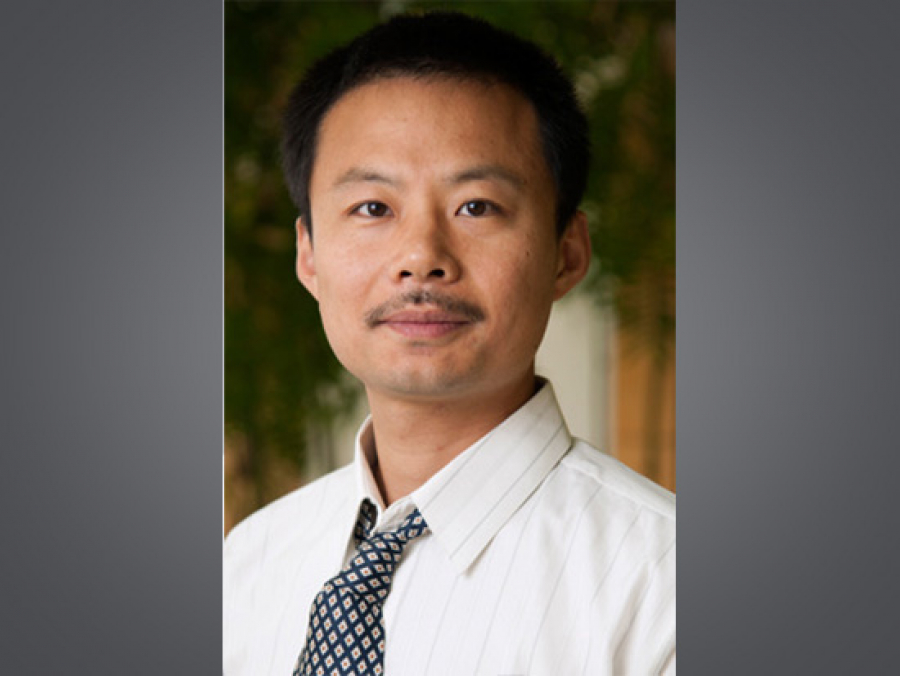 $3.69 million NIH grant to advance healthy aging research awarded to UABLiou Sun’s research group will seek to understand how ceramides and growth hormone signaling contribute to healthier aging, providing meaningful insights to develop innovative therapies for age-related diseases.
$3.69 million NIH grant to advance healthy aging research awarded to UABLiou Sun’s research group will seek to understand how ceramides and growth hormone signaling contribute to healthier aging, providing meaningful insights to develop innovative therapies for age-related diseases. -
 CAS Graduate Research Day spotlights research and the changing landscape of graduate educationOn November 20, 2024, the College of Arts and Sciences (CAS) hosted its first-ever Graduate Research Day at the University of Alabama at Birmingham’s Alumni House.
CAS Graduate Research Day spotlights research and the changing landscape of graduate educationOn November 20, 2024, the College of Arts and Sciences (CAS) hosted its first-ever Graduate Research Day at the University of Alabama at Birmingham’s Alumni House. -
 Raut’s expertise in demand across IndiaFor Sami Raut, the journey to earning her Ph.D. in the United States required resilience and commitment.
Raut’s expertise in demand across IndiaFor Sami Raut, the journey to earning her Ph.D. in the United States required resilience and commitment. -
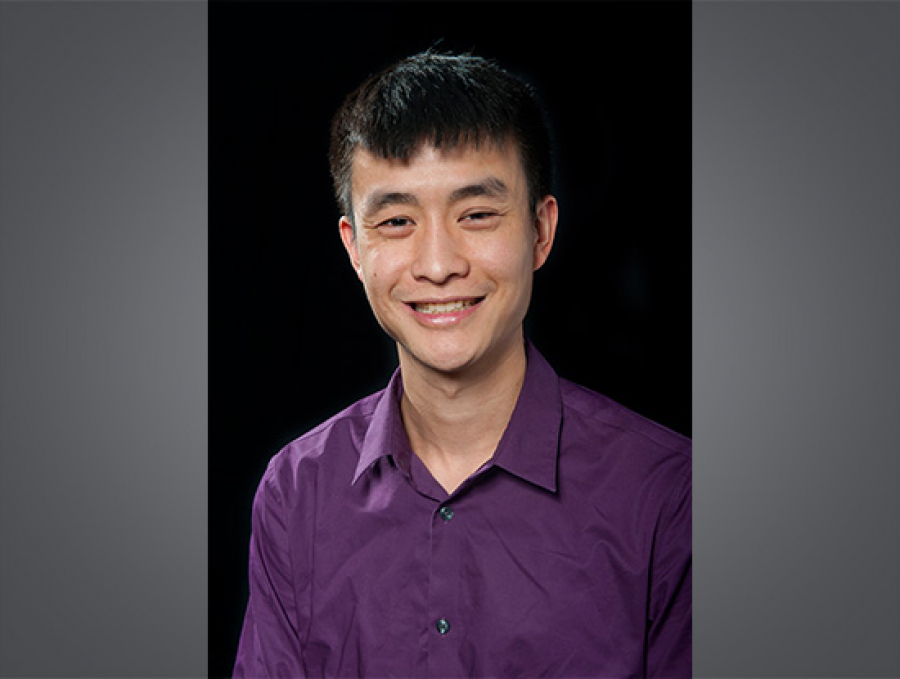 UAB biologist to co-lead a five-year NIH grant to investigate social impacts on lifespanKenneth Chiou, Ph.D., is a principal investigator on an international collaborative NIH project budgeted at more than $3 million; UAB will receive $1.5 million.
UAB biologist to co-lead a five-year NIH grant to investigate social impacts on lifespanKenneth Chiou, Ph.D., is a principal investigator on an international collaborative NIH project budgeted at more than $3 million; UAB will receive $1.5 million. -
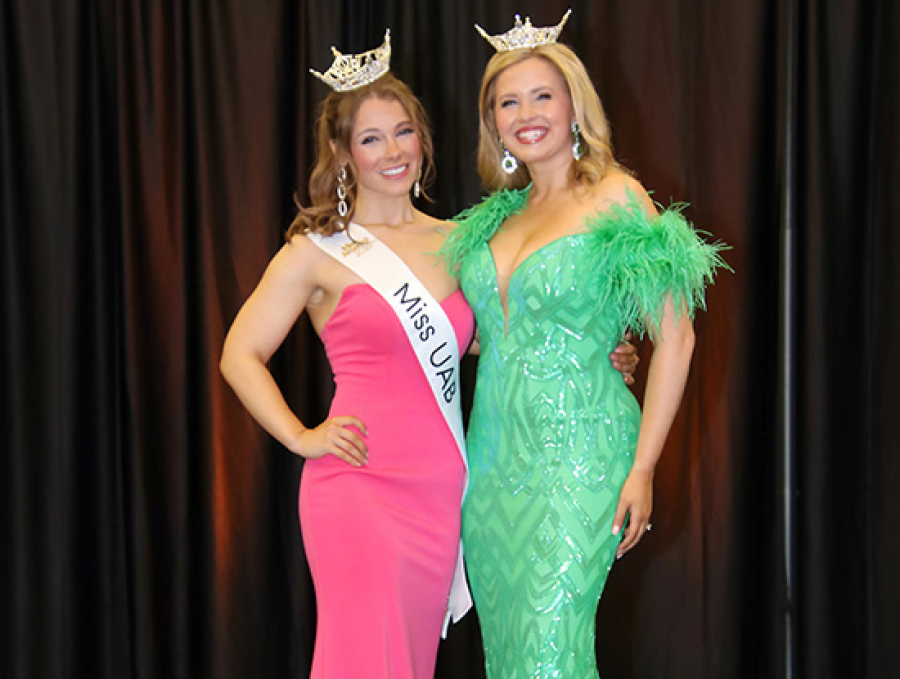 The new Miss UAB is Melissa MercerMercer, 21, of Spanish Fort, Alabama, also won the Miss Congeniality and Talent awards, winning $2,600 in scholarships.
The new Miss UAB is Melissa MercerMercer, 21, of Spanish Fort, Alabama, also won the Miss Congeniality and Talent awards, winning $2,600 in scholarships. -
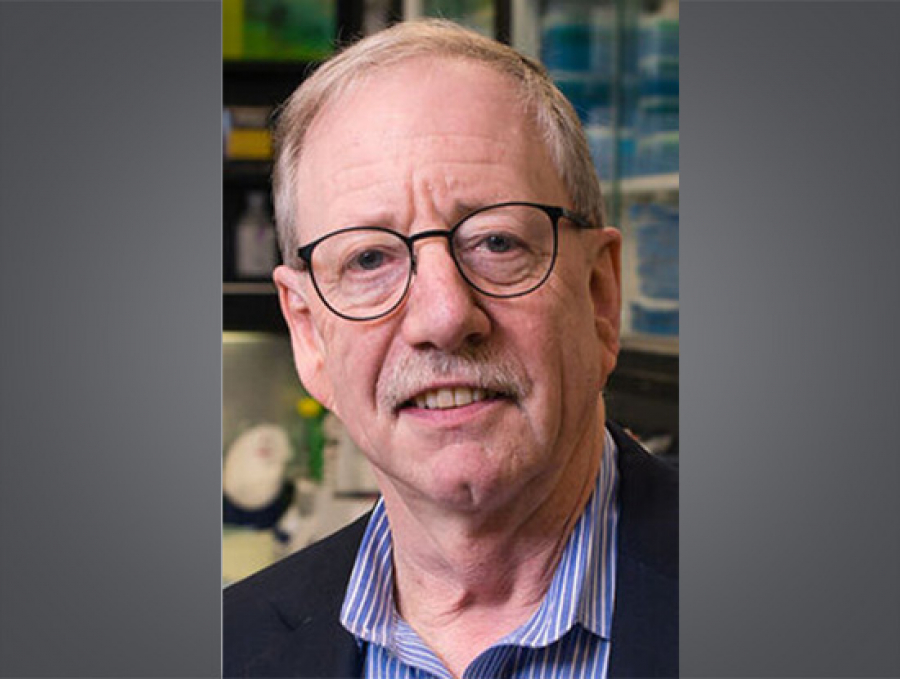 UAB professor receives prestigious national lifetime achievement award for fostering values of mentoringSteven Austad, Ph.D., has been awarded the inaugural George M. Martin Lifetime Achievement in Mentoring Award by the American Federation for Aging Research.
UAB professor receives prestigious national lifetime achievement award for fostering values of mentoringSteven Austad, Ph.D., has been awarded the inaugural George M. Martin Lifetime Achievement in Mentoring Award by the American Federation for Aging Research.